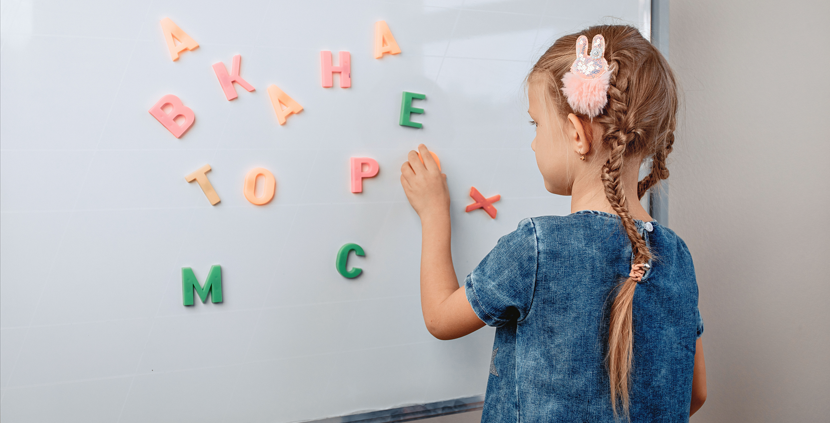How to Raise Bilingual Kids and Why It Matters
Do you speak more than one language and want your child to as well? Being bilingual in our interconnected world is a huge advantage. It’s been said that kids are like sponges and can easily learn any language at a young age. That said, there are a few things you should keep in mind to set them up for success.
What’s the best age for learning multiple languages?
The pre-school years are an excellent time to learn new languages because a toddler’s brain adapts easily to new experiences. Did you know that between the ages of two and three, a child’s brain is twice as active as an adult’s? Plus, kids at this age can more easily distinguish the sounds of different languages around them, which enables them to speak with a native accent.
How can you help a child learn new languages?
- To learn two or more languages fluently, a child needs to hear them often and have opportunities to speak them. One way of accomplishing this is to cultivate a social network where the languages are used during activities like community events, exercise classes, play dates, family outings, etc.
- Reading stories to your child in the different languages is a fun, effective way to stimulate their language learning from the earliest age.
- Travel, spend time abroad or visit extended family members who speak other languages.
When the parents speak two different languages
- It’s best if parents don’t mix the two languages in the same phrase when speaking to their child because this can make it more difficult for them to learn the minority language (the language spoken by a minority of people around them).
- It’s essential to expose the child to the minority language as much as possible. Perhaps you could decide to speak one language during the week and another on the weekend? You should also create a positive atmosphere around the minority language to promote learning because the little one will understand at a young age that one of their languages isn’t used outside their family. This is why many children understand a second language but aren’t able to speak it.
- Speak to your child in your native language to model how to use the language you speak best.
When both parents speak the same language
Often, two parents who speak the same native language want their child to be fully bilingual. While this may be more difficult, it can work well with some good planning and effort.
- Expose your child as often as possible to books, movies, music, and TV and radio stations in the second language.
- Make sure your child establishes a solid base in the minority language very early by enrolling them in a childcare facility where it’s the only or main language used.
- At the same time, you can also enroll your child in language classes to support their learning.
The most important thing is to promote a balance between the two languages as early as possible, because several factors can influence learning in different languages and the language the child chooses to use.
Can learning multiple languages cause language delay?
Mixing languages doesn’t harm overall language development or cause language delays or difficulties. A five-year-old exposed regularly to two or more languages will have similar language development to a child who only speaks one language. However, it’s normal for a child to have different strengths in the two languages. They may be able to construct better phrases in one language and have a larger and more precise vocabulary in another language.
Avoid evaluating a bilingual child’s language skills in just one language. Instead, look at all words and phrases formulated in both languages. The most important thing is to promote a balance between the two languages as early as possible, because several factors can influence learning in different languages and the language the child chooses to use. These factors include age, amount of exposure to the languages, status of these languages in the country where you live, etc.
At the end of the day, bilingualism from a very young age is a huge advantage in many areas of life and a priceless gift to offer your children.















Leave a Reply
Want to join the discussion?Feel free to contribute!